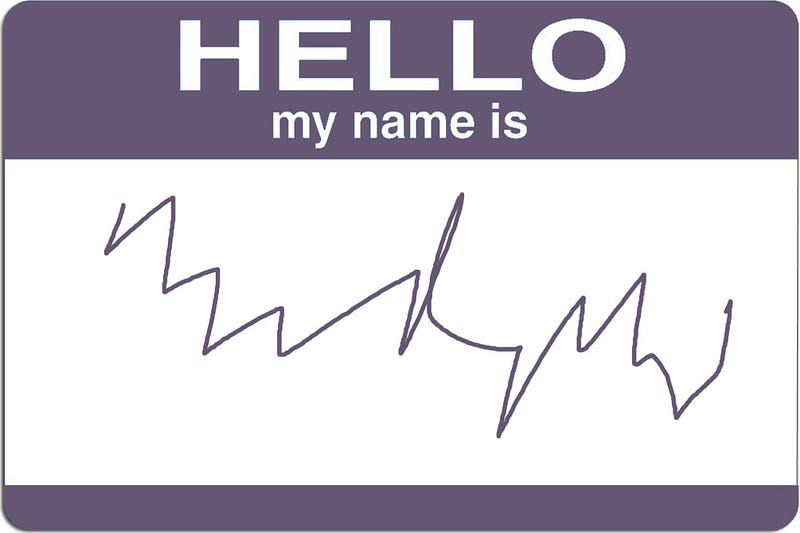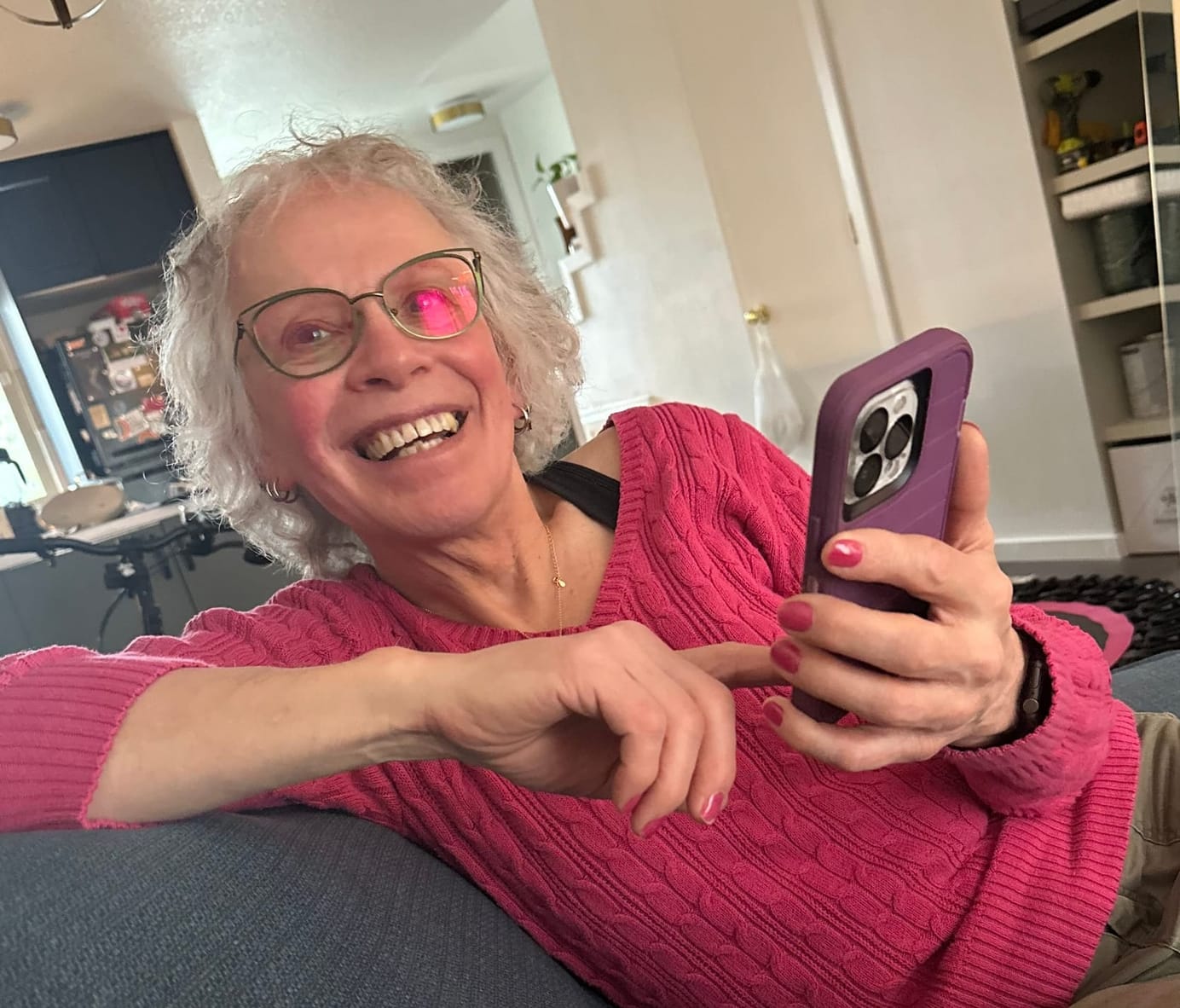Death of a Name: On Trans People, Transition, and Integration
I had to go to the courthouse today.


No, not for that — I filed my petition for a legal name change. I mentioned previously that choosing a fancy name is one of the perks of a gender transition, and I want to take full advantage of this perk. It will take a few weeks for my petition to be processed through the courts, then a judge signs and completes the order. I still have time to wait, but I have at least taken the first steps.

As I write this, I am four months into hormone therapy, which — unlike Shadowfax — has shown me the meaning of torpor. Being able to make progress in any direction has helped me feel as if I am moving toward the goal of transition. That said, movement requires an origin as well as a destination. In the transgender community, the origin in this case is known colloquially as the deadname.
The Deadname
When a transgender person decides to transition — in any sense — there are two primary sources of ongoing pain. Those two are misgendering and being referred to by the deadname. (I single these out from the myriad other slights aimed at the transgender community on a daily basis — we only have so much time here.)
Misgendering is straightforward: depending on the level at which a transgender person “passes” as the desired gender, there are situations in which the wrong gender pronouns are used — accidentally or otherwise. For example, referring to me as “he” or “sir” when I show up in a lovely purple fit-and-flare dress and flawless makeup. I understand very well that this will happen.
Some people, after all, will take pleasure in reminding me they do not approve. I have tried my best to prepare for it.
Being referred to by deadname is more subtle. The word deadname describes the transgender person’s name prior to transition, as in “the person referenced by this name is dead; I am now a new person with a new name.”
As I change my name, I will have to update the records in every single office I have been in contact with over the course of my 52 years. The chances of being called into an office as “Mr.” are high, simply because our names are so much a part of our identity within a society.
It is the identity that I wanted to discuss. In particular, to consider whether I truly can attest that the person referred to by my current name dies.
There are aspects about myself that I expect to change, and some that I would prefer not to die. For the sake of this article, I will spell my current masculine name as R — , which just drips with Victorian Era scandal book goodness. I can see the Marquis de Sade’s powdered wig coming through the door now. (And yes, I recognize the Marquis de Sade predated the Victorian Era by some 20 years. Work with me here.)
The Human
I was born in California. That is, there is a birth certificate with my deadname on it in California that serves as evidence of a person’s birth — presumably mine. I intend to change both the name and gender marker on that birth certificate to match who I feel I truly am, not who the doctor and my parents assumed I was at the time. (I certainly do not blame the doctor or my parents for getting that part wrong. I was young at the time.)
I wrote that bit about the birth certificate in a cagey manner because a legal name change is a bit odd. The government doesn’t care what my name is. They care about collecting taxes from an ID number, whether that is a Social Security Number or an Employer ID Number. So it could certainly be argued that I have no good reason to change my name. In fact, it could be said that by changing my name, I erase a part of myself and my life experiences that I will not get back.
The policy in California is to seal the birth record if both name and gender marker are amended. I will receive a new birth record in the California legal system. My old name and birth certificate become null and void. But do I truly lose R — ? Do I want to lose R — ?
I do not hate R — . I do not identify with him, and I still do not hate him. I am Amethysta, as I have stated and as I have petitioned the court to recognize. That said, I need to accept that I was R — to ensure that I take the lessons learned over 52 years and continue to apply them.
R — did some good stuff in his life. He went to college and earned a Ph.D. He married a wonderful woman he did not deserve and became the father of a son of whom he could not be more proud. He worked very hard and left a career in technology at least a little respected in the field.
R — also had some horrible stuff happen to him. He was abused as a child. He was bullied. He was humiliated for daring to think in a way that was not masculine enough. His life was punctuated by chronic mental health issues, suicide attempts, and psychotic episodes — many of which were likely symptoms of an underlying gender dysphoria. (I’m much better now.)
The Integration
For both the good things R — was able to accomplish and the bad things R — was forced to endure, he deserves to be remembered as well as honored. If R — had not existed to experience what life was going to offer, would Amethysta ever have existed? It has been written that “a rose by any other name would smell as sweet.” What about the identity? Even if I am capable of doffing the name that is no part of me, I cannot change the person I truly am.
In this way, I feel I need to integrate R — and Amethysta as opposed to discard one in favor of the other. R — does not die; he merely gets renamed and comes back to a different Jellicle Life. (That’s what I heard, anyway. The details around “different Jellicle Life” were a bit fuzzy in the pamphlet.)
I will amend my Social Security record, my birth certificate, my driver’s license, and any commonplace forms of identification I currently use: library card, bank cards, etc. I need to update my medical records, the services I use, and other corners of society where R — has permeated. But there are records that I choose not to change.
I will not amend diplomas I have earned. I have never chosen to display them and only needed a photocopy of my Ph.D. diploma to begin my first job. There is no benefit in changing my name there or on academic journal articles published with my old name. I have barely worked within my academic field, anyway, and nobody will miss R — .
I will not amend my marriage certificate. My wife married Amethysta from the start — she knew that when she said yes to my proposal. The name has changed, but the person has not. I want to honor the original commitment that I made to her.
I will not amend my son’s birth certificate. He was born to a father who could not be the person he believed his son needed and suffered for it until finally realizing transition was the answer. Fortunately, my son agrees and supports me in this. Someday, however, the physical traces of R — will be very difficult to find, and I want to honor my son’s parentage.
Other than these three areas, R — will go away. But R — will never truly die, not while Amethysta lives. Because I am not my name. I am the people I have touched and the experiences I have lived. I am my identity, my consciousness-quickened composite in this society, in this body, in this life.
I am Amethysta, and I am eternal.




